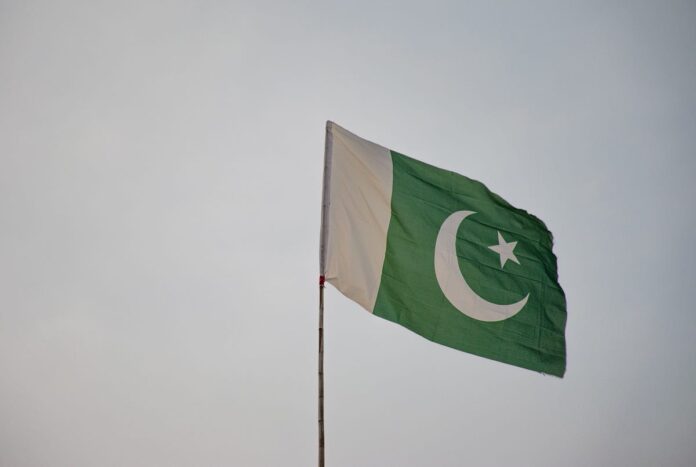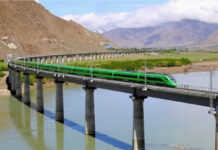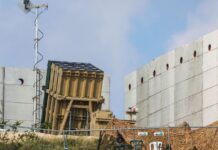The present political crisis in Pakistan is multifaceted. In order to understand and analyse various aspects of the crisis, it is important to look into the context in which it is unfolding. In its 14 September editorial, the prominent English daily newspaper The Dawn wrote that
“The economy is in a historic mess … Households cannot pay their electricity and food bills … Terrorism, too, is on the rise. The state of human rights in the country is dire. And political space is as narrow as ever.”
By Ashish Shukla
Pakistan has barely come out of an imminent economic default in late June 2023 when International Monetary Fund (IMF) agreed to dispense US$ 3 bn as part of US$ 6.5 bn bailout package signed in 2019. As per the recent data available in public domain, Pakistan received US$ 1 bn from China in June, US$ 2 bn from Saudi Arabia and US$ 1.2 bn from IMF in July which ensured that the country did not default.
Ethnic and sectarian fault lines are starkly visible. The indigenous terror outfits that politico-security elites consider belonging to ‘Bad Terrorist’ category – especially the Tehreek-e-Taliban Pakistan (TTP), have renewed their momentum with a series of attacks against the Pakistani armed forces in Khyber Pukhtunkhwa and elsewhere. Pakistan, at present, has a highly fragmented society and an even more fragmented political class which is on the way of destroying whatever semblance of democratic system and structures it had evolved after Gen. Pervez Musharraf’s departure from the political scene. From 2008 till 2018, there was smooth power transfer at the federal level. The governments, if not the Prime Ministers, completed their five-year tenures in office.
The Soft Coup
The security establishment, using Panama Papers disclosures, built the case for Nawaz Sharif’s removal. Many considered it a soft coup through judiciary to oust Nawaz Sharif from power. The allegation against him was that he did not declare a salary of 10,000 dirham as part of his income in his nomination papers. Notably, Nawaz Sharif assumed the position of Chairman in his son Hasan Nawaz’s company Capital FZE to secure an Iqama—a UAE work visa that facilitated his access to the Gulf state during his years in exile. The Supreme Court held him guilty under Article 62 (1) (f) of the Constitution which requires a member of the National Assembly to be Sadiq and Ameen (Honest and Righteous).
Recently, while attending a meeting of Pakistan Muslim League-Nawaz (PML-N) Punjab office-bearers, Nawaz Sharif categorically stated that Gen. Qamar Javed Bajwa and Gen. Faiz Hameed, the then Chief of Army Staff (COAS) and Director General (DG) Inter-Services Intelligence (ISI), were responsible for his removal. In the process, they used Chief Justice Mian Saqib Nisar, whom Shehbaz Sharif had termed the main architect of Nawaz Sharif’s disqualification, and Asif Saeed Khosa, who went on to become Chief Justices in January 2019, as instruments.
Once Nawaz Sharif was declared ineligible to hold public office, the security establishment resorted to time-tasted tricks to catapult its puppet, cricketer-turned-politician Imran Khan at the helm of the affairs. Due to looming shadow of Army over Imran Khan’s electoral success in 2018 elections, many analysts started referring him as ‘Selected Prime Minister’.
The Growing Rift
Initially, the establishment’s ‘Project Imran’ was going well but in due course of time, Army became frustrated with Imran Khan’s failure to deliver good governance, and perhaps at how they were being publicly blamed for bringing him into power by the opposition. In a recent discloser by Shahzad Akbar, who earlier served as Imran Khan’s advisor for accountability and interior, Gen. Qamar Javed Bajwa and Gen. Faiz Hameed did not help PTI candidate Abdul Hafeez Shaikh who hotly contested electoral battle for Senate membership against former Prime Minister Yousuf Raza Gillani.
Akbar claimed that just before the Senate election in 2021, he received a report by civilian intelligence agency having names of those not voting in favour of PTI candidate.9 Since Imran Khan had taken upon himself to ensure his victory, he did not want to take chances. He approached Gen. Qamar Javed Bajwa and Gen. Faiz Hameed for the same. The duo responded that nothing of that sort would happen. However, when the election results were declared, Gillani emerged victorious with 169 votes, whereas Abdul Hafeez Shaikh got 164 votes.11 This, according to Shahzad Akbar, reflected the changing mood of Pakistan Army towards Imran Khan. However, Imran Khan did not read the setback in that way.
In October 2021, the difference between Qamar Javed Bajwa and Imran Khan came to the fore over the alleged transfer of the then DG-ISI Gen. Faiz Hameed. The COAS wanted Gen. Nadeem Anjum to take over as new DG-ISI, whereas Imran Khan wanted to retain him till the next general election. Despite attempts made by Imran Khan, the rift widened to the extent that Pakistan Army refused to back him on internal political matters. This was the time when Army started claiming to be ‘neutral’. The opposition People’s Democratic Movement (PDM) sensed an opportunity to get rid of Imran Khan from power. A No Confidence Motion was tabled in the National Assembly in March 2022. In the wake of an imminent defeat, Imran Khan started raising the point of a foreign funded conspiracy against his government and went on to blame security establishment.
On 10 April 2022, Imran Khan was removed from office, as he lost the No-Confidence Vote in the National Assembly. Shehbaz Sharif was sworn in as the new Prime Minister next day and since then Imran Khan resorted to open accusations against the powerful security establishment, especially the top brass. As he was still popular with the masses, he thought of taking advantage of his popularity and tried to force the new dispensation for an early election. On 11 April 2023, to pressurise the new government, 123 PTI Members of National Assembly (MNAs) resigned en mass. With security establishment backing the PDM, Imran Khan’s pressure tactic did not result in a favourable outcome.
Dissolution of Provincial Assemblies in Punjab and KP
In January 2023, Imran Khan decided to dissolve the provincial assemblies in Punjab and Khyber Pukhtunkhwa so that the federal government is forced to announce provincial elections. The ruling dispensation and Election Commission did not go by the constitutional rule book. They refused to conduct the election within the stipulated period of 90 days from the date of dissolution. Whereas National Assembly did not sanction the required budget, the security establishment, citing internal security challenge, expressed its inability to provide security personnel for the smooth conduct of elections. Chief Justice Umar Ata Bandial took suo motu notice of the delay in holding polls in Punjab and Khyber Pukhtunkhwa assemblies. Later, when the apex court passed a judgement to conduct election in Punjab on 14 May, the ruling elites locked horns with the judiciary itself and went on to violate its judgement.
9 May Incident and Its Fallout
Amid demands to conduct elections as per the date given by the Supreme Court, Imran Khan faced a tough situation on the political front. The National Accountability Bureau (NAB), the anti-corruption watchdog, arrested him on 9 May 2023 following which his supporters went on a rampage throughout the country and even targeted security institutions. In Lahore, the Jinnah House, the home of Corp Commander, Lahore, was ransacked. Some activists were seen taking out edible items from the refrigerator, one of them even put on the Official Uniform of the Corp Commander and came out on the road.
This was unprecedented in Pakistan’s history. It is interesting to note that while security installations were under attack, military did not try to stop those involved in it. Initially, the official line was that military practiced restraint and did not go after the civilians. Later it was decided to take stern action against those involved. Some people believe that Imran has done the unthinkable in Pakistan—he has successfully divided the Pakistan Army from within. It is believed that the lower rung of the Pakistan Army is favouring Imran Khan. The recent amendments to the Official Secret Act and Pakistan Army Act indicate that the argument regarding a division in Pakistan Army appears plausible as these amendments are aimed to regulate armed forces personnel, even after their retirement.
Squeezing the Political Space for PTI
Using the 9 May incident as Pakistan’s 9/11, the security establishment has come up with a new strategy to marginalise Imran Khan and his Pakistan Tehreek-e-Insaf (PTI) from the political landscape. Trying civilians in military courts under Pakistan Army Act and Official Secret Act is part of the strategy. Top PTI leadership including Imran Khan and Shah Mahmood Qureshi might be the ones being tried under these acts, as had been indicated by Chief of Army Staff Gen. Asim Munir in Formation Commanders Conference held on 7 June 2023.
Ever since the 9 May incident, the security establishment has been busy in breaking up the PTI and laying the foundation of a new King’s Party called Istehkam-e-Pakistan Party (IPP). Sugar baron Jahangir Tarin on 8 June held a press conference in Lahore to announce the formal launch of his new political Party—Ishtehkam-e-Pakistan Party. This was followed by the launch of PTI break-away faction by Pervez Khattak. On 17 July, former Chief Minister of Khyber Pukhtunkhwa, Pervez Khattak launched a new political party called Pakistan Tehreek-e-Insaf Parliamentarian (PTI-P) which was immediately joined by close to five dozen former PTI MLAs from Khyber Pukhtunkhwa.
Approval of Digital Census and Dissolution of National Assembly
After initial denial, the ruling establishment moved forward to bring another technicality in play to further delay the election. On 5 August, the government called the meeting of the Council of Common Interest (CCI) to approve the new digital census. The CCI in its meeting unanimously approved the digital census to make way for new delimitation of the constituencies. With this new development, under Section 17 (2) of Election Act, fresh delimitation of the constituencies are required. The Section 17 (2) of the Election Act categorically states that ‘The commission shall delimit constituencies after every census is officially published’. As expected, the Election Commission announced to take up the delimitation process and made it clear that the elections would not take place within 90 days after the dissolution of the National Assembly, as indicated by the ruling dispensation. On 9 August 2023, President Arif Aliv dissolved the National Assembly on advice of the Prime Minister Shehbaz Sharif following which a caretaker set-up under Anwaar-ul-Haq Kakar has assumed charge.
The Toshakhana Verdict and Arrest of Imran Khan
Imran Khan was re-arrested on 5 August 2023 and put behind bars in a Toshakhana Corruption case after a sessions court found him guilty and sentenced him to three years in prison. Since then, he has been lodged in Attock jail. Despite getting relief from Islamabad High Court on 29 August, Imran Khan was not released as he was shown arrested in Cypher case. Currently, he is facing more than 150 cases and establishment’s modus operandi is to keep him in jail on the basis of one or the other charges. It is pretty much clear that general elections are not happening within the stipulated time frame of 90 days after the dissolution of National Assembly.
The Next General Election
Article 224 of the Constitution says that
“A general election to the National Assembly or a provincial assembly shall be held within a period of sixty days immediately following the day on which the term of the assembly is due to expire, unless the assembly has been sooner dissolved.”
And according to Article 224 (2), “When the National Assembly or a Provincial Assembly is dissolved, a general election to the Assembly shall be held within a period of ninety days after the dissolution.” By this logic and constitutional requirement, the general election must take place in the first week of November. As of now, the date for elections has not been announced.
After the dissolution of National Assembly, a number of PML-N leaders, including former Cabinet Ministers, are talking about election happening in February 2024. PML-N leader Rana Sanaullah, who served as the interior minister during PDM government’s tenure, in an interview to Geo TV’s anchor Shahzeb Khanzada stated that “Nawaz Sharif is sure that elections will take place in February. Delimitation of constituencies has to be completed before then, and it will be completed by December.” Some of the opposition parties are objecting to such statements coming not from the Election Commission but by the PML-N leaders. PPP in particular has questioned such statements. Amid debate over the timing of general election, the Election Commission on 21 September 2023 announced that the election would be held in the last week of January 2024.
Tough Road Ahead for PTI and Imran Khan
As the Chief Justice Umar Ata Bandial, considered to be a protector and saviour of Imran Khan, has retired on 16 September 2023 and Justice Qazi Faez Isa has taken over as the new Chief Justice, analysts believe the judicial cushion will no longer be available to Imran Khan. In such a situation, remnant of PTI, if not banned on the pretext of 9 May violence, will have to participate in the next election without Imran Khan and Shah Mahmood Qureshi. If this happens, the electoral outcome could be on familiar lines. Pakistan Institute of Legislative Development and Transparency (PILDAT) Chairman Ahmad Bilal Mahboob in his Op-Ed for The Dawn argued that ever since the first direct election in 1970, none of the political parties were allowed to regain power immediately at the federal level after it was removed or fell out of favour with the Pakistan Army.
Imran’s Increasing Popularity
Although Pakistan Army has always tried to craft new political narratives at home and mainstream it effectively, in case of Imran Khan, this isn’t working as efficiently as it was expected to. His imprisonment in Attock Jail, instead of putting a dampener to his popularity, is in fact increasing it. Pakistan Army is determined to not let Imran Khan come out of prison and lead his party in the elections. Social media is hyperactive and polarised between pro and anti-Imran Khan. Army’s narrative is challenged by PTI supporters and sympathizers on various social media platforms. They see the development as Imran Khan vs Army top brass and are not ready to accept even logical arguments against Imran Khan.
Although the mainstream media is not favouring Imran Khan, it is also not helping the establishment to propagate its narrative in a big way. At present, the Army is finding it difficult to control the mainstream media. Given the situation, it seems that Pakistan Army has resorted to a new tactic which focuses on social media influencers to propagate its point of view to the people of Pakistan. These influencers are regularly given access to exclusive information and documents to ensure their credibility in people’s eye.
For example, Javed Chaudhry, who runs a YouTube channel ‘Neutral by Javed Chaudhry’ got access to Bushra Bibi’s diary, which Imran Khan used to carry with him all the time. He disclosed things that were unknown to mainstream media houses and prominent TV journalists. The diary has details about Imran Khan’s daily routine and engagement on a day to day basis. It seems such exclusive information was provided to Javed Chaudhry to malign Imran Khan and dent his public image.
Conclusion
It is difficult to predict the outcome of the ongoing political crisis in Pakistan. However, analysts rightly believe that this election, whenever it takes place, is going to be a test of Army’s predominance in Pakistani politics. The Army is considered to be the only well founded ‘Political Party’ in Pakistan that never contests election directly but remains in power all the time. Nothing can be conclusively said about the fate of Imran khan and PTI at this juncture. Imran Khan’s favourite Chief Justice Umar Ata Bandial has retired.
The New Chief Justice Qazi Faez Isa may have his issues with Imran Khan and the establishment in the past, but he has been an upright judicial officer throughout his career. In the past, he has not shied away from questioning the role of powerful stakeholders including politico-security elites in the country. He is known for his suo motu notices on Hazara Killings in Balochistan by Lashkar-e-Jhangvi, the killings of Baloch Nationalist leaders in 2009, and the role of state functionaries during Faizabad sit-in by Tahreek-e-Labbaik Pakistan (TLP) in 2017. Isa has also questioned the dubious role of state agencies including ISI and noted his disappointment in the way ISI interferes in matters of political significance. It was Justice Isa who had also opposed Nawaz Sharif’s removal under Article 62 (1) (f) which required a member of National Assembly to be Sadiq and Ameen (Honest and Righteous). Justice Qazi Faez Isa, therefore, has displayed courage to confront powerful actors including political elites, the military establishment, and religious outfits. A lot will depend on what kind of role he plays in the coming days.
This article first appeared in www.idsa.in and it belongs to them.








